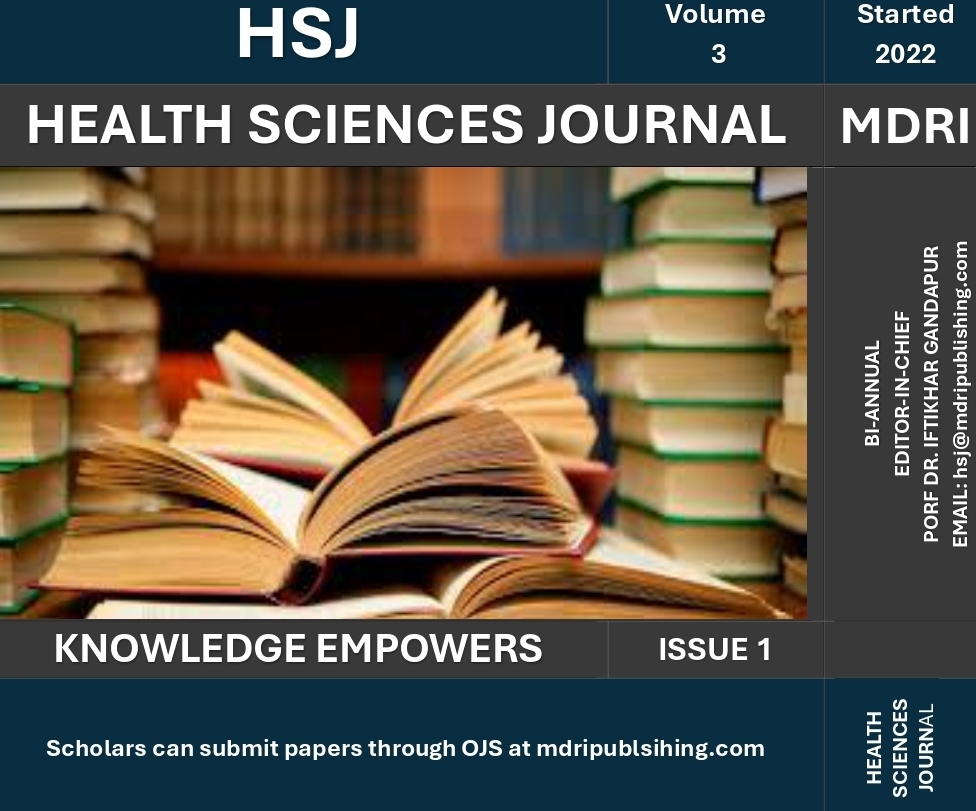ISOLATION AND CHARACTERIZATION OF ESCHERICHIA COLI IN UTI PATIENTS OF DISTRICT D.I.KHAN AND TO PROBE THEIR ANTIBIOTIC RESISTANCE
DOI:
https://doi.org/10.59365/hsj.3(1).2024.117Keywords:
AMR, Antibiotics, E. coli, UTI,KPKAbstract
Background: Globally urinary tract infections are present predominantly and mostly UTIs are present or noticed in the developing countries like Pakistan, Bangladesh etc. There are multiple factors in spread of UTIs like microbes, taking certain medicines, sexual activities, poor hygiene, not taking enough water etc. Objectives: The prevalence of UTIs and development of resistance against the antibiotics is due to unjustified use of antibiotics. Methodology: We performed a study in a remount area of Khyber Pakhtunkhwa i,e Dera Ismail Khan. We conducted a research study consist of a three months duration. Hundred (100) urine samples were collected from the patients who visited District Head Quarter (DHQ) teaching hospital Dera Ismail Khan. Patients having different age groups were included in study, Results: After processing samples, the number of samples having E.coli i,e positive samples were 73 in number, which were confirmed on the basis of different tests. The prevalence of UTIs due to E. coli organism was noticed increased in female patients (69 %) as compared to male patients and its prevalence was 31%.When the isolated E. coli strain were tested against different antibiotics, showed that those strains which were isolated from urine samples of the male patients of age group 61 to 80 years showed higher sensitivity against PTZ, NF, FOS, AK, IMP, and SCF, while in female high rate of sensitivity against PTZ, NF, FOS, AK, IMP, and SCF antibiotics was observed against E. coli strains which were isolated from the patients having age from 21 to 40 years Likewise E.coli isolates were sensitive against Imipenem, Peracillin + Tazobactam, Cefoperazone + sulbactam, Fosfomycin, Amikacin, Nitrofurantoin, Peracillin and Tambactam irrespective of age of the patients from which bacteria were isolated. Conclusion: Furthermore, present study also revealed, that the E. coli has developed resistance against commonly used antibiotics which is a serious concern to worry about and serious steps should be taken by the authorities to stop frequent use of antibiotics without proper prescription to avoid this issue.





